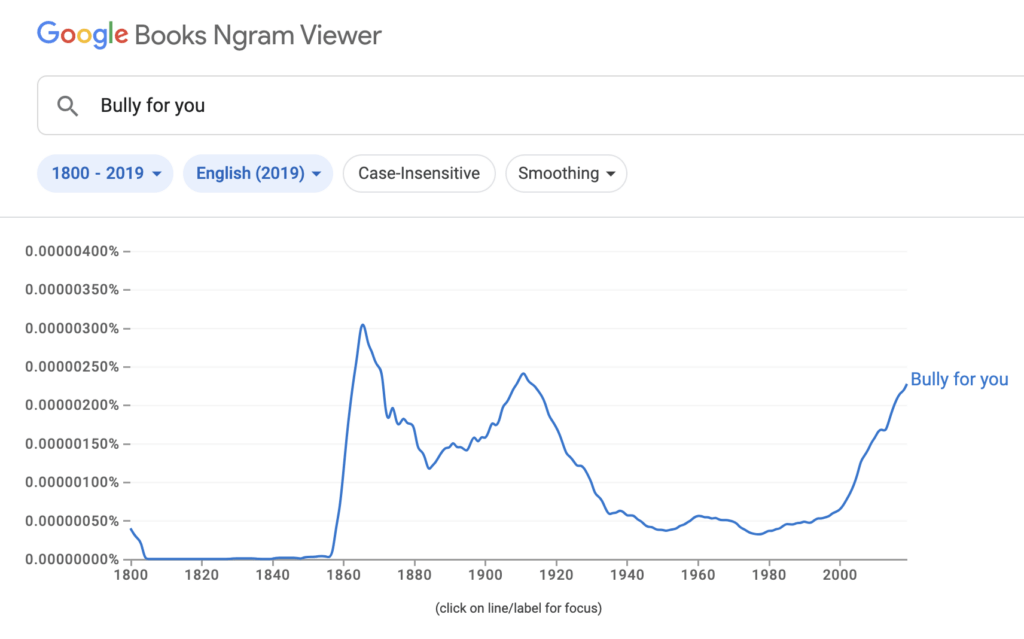A few weeks ago we talked about words that have changed meaning over time, like “nice” and “silly.” Another one of those words was “bully,” which in its early days, was a friendly way of addressing someone. For example, here’s a line from the “Century Dictionary,” published in the 1800s, which says it’s a way of referring to a high-spirited, dashing fellow: “I love the lovely bully.”
In that episode about changing meanings, we didn’t talk about the phrase “bully pulpit,” and a few of you asked about it, so here’s a quick follow-up:
You might think the phrase refers to someone getting behind a pulpit and bullying people: harassing the audience or intimidating them. That’s what I thought for years — but it’s actually related to one of those good, older meanings of “bully” instead, along the lines of the old-timey phrase “Bully for you!” which meant “Good for you!” And which, from a Google Ngram search, looks like it was going strong in the early 1900s.
It was right at that time that U.S. president Theodore Roosevelt coined the term. He was talking about the influence he had as president, and what a fabulous — “bully” — pulpit he had when speaking.
The Oxford English Dictionary has the first citation as an article in “Outlook”; it’s an anecdote reported by the magazine’s editor, Lyman Abbott, a long-time advocate of Roosevelt. I think the full paragraph provides more context than just the one sentence that has the phrase, so I’m going to include the whole thing:
Half a dozen of us were with the President in his library. He was sitting at his desk reading to us his forthcoming Message. He had just finished reading a paragraph of a distinctly ethical character when he suddenly stopped, swung round in his swivel chair and said “I suppose my critics will call that preaching, but I have got such a bully pulpit!” Then he turned back to his reading again. The episode is interpretive of the man. He has been a ranchman, administrator, soldier, politician, statesman — but always and everywhere a moral reformer. I think there are two reasons for his enjoyment of his Presidential office: one, that it has enabled him to do things; the other, that it has given him a National platform from which to say things.
People who use their bully pulpit aren’t bullies the way we think of that word today. They’re just taking advantage of having a platform for their ideas. Thanks for the question!





